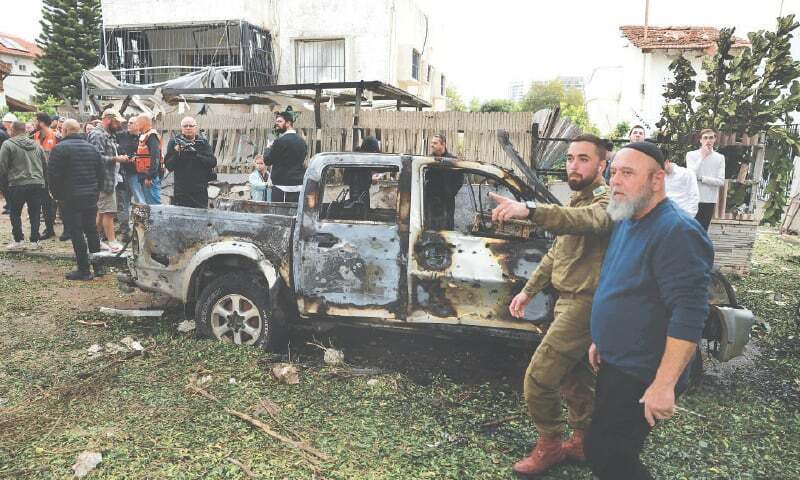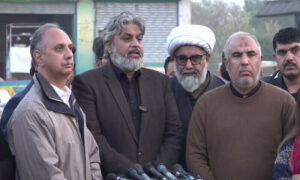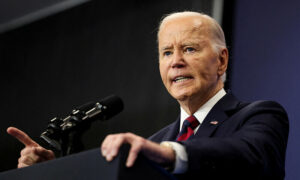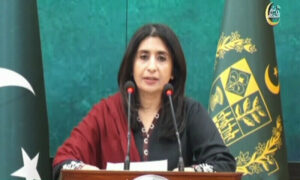JERUSALEM: Hezbollah fired heavy rocket barrages at Israel on Sunday, with Israeli media reporting that a building had been hit near Tel Aviv, after a powerful Israeli airstrike killed at least 29 people in Beirut the day before.
Israel also struck Beirut’s Hezbollah-controlled southern suburbs, where intensified bombardment over the last two weeks has coincided with signs of progress in US-led ceasefire talks.
Hezbollah, which has previously vowed to respond to attacks on Beirut by targeting Tel Aviv, said it had launched precision missiles at two military sites in Tel Aviv and nearby.
Police said there were multiple impact sites in the area of Petah Tikvah, on the eastern side of Tel Aviv, and that several people had minor injuries.
Television footage showed an apartment damaged by rocket fire in Petah Tikvah, and video from the medical service MDA showed cars burning.
The Israeli military (IDF) said Hezbollah had fired 170 rockets at Israel on Sunday, of which many were intercepted.
At least four people had been injured by shrapnel.
Video showed a projectile exploding as it smashed into the roof of a building in the northern Israeli city of Nahariya.
The military warned on social media that it planned to target Hezbollah facilities in southern Beirut before strikes which security sources in Lebanon said demolished two apartment blocks.
Afterwards, the IDF said it had hit command centres “deliberately embedded between civilian buildings”.
on Sunday. — AFP
On Saturday, it had carried out one of its deadliest and most powerful strikes on the centre of Beirut.
Lebanon’s health ministry on Sunday raised the death toll from 20 to 29. It said 84 people had been killed in all on Saturday, taking the death toll to 3,754 since October 2023.
Ceasefire proposal
The Israeli offensive has uprooted more than 1 million people in Lebanon. Israel says its aim is to secure the return home of tens of thousands of people evacuated from its north due to rocket attacks by Hezbollah, which opened fire in support of Hamas at the start of the Gaza war in October 2023.
US mediator Amos Hochstein highlighted progress in negotiations during a visit to Beirut last week, before travelling to meet Israeli Prime Minister Benjamin Netanyahu and Defence Minister Israel Katz, and then returning to Washington.
Diplomacy has focused on restoring a ceasefire based on UN Security Council Resolution 1701, which ended a 2006 Hezbollah-Israel war.
It requires Hezbollah to pull its fighters back around 30 km from the Israeli border, and the Lebanese army to deploy in the buffer zone.
The Lebanese army said at least one soldier had been killed and 18 more injured in an Israeli strike that caused severe damage at an army centre in Al-Amiriya near the southern city of Tyre.
Lebanon’s caretaker prime minister, Najib Mikati, said the attack “represents a direct bloody message rejecting all efforts to reach a ceasefire, strengthen the army’s presence in the south, and implement … 1701”.
Published in Dawn, November 25th, 2024






